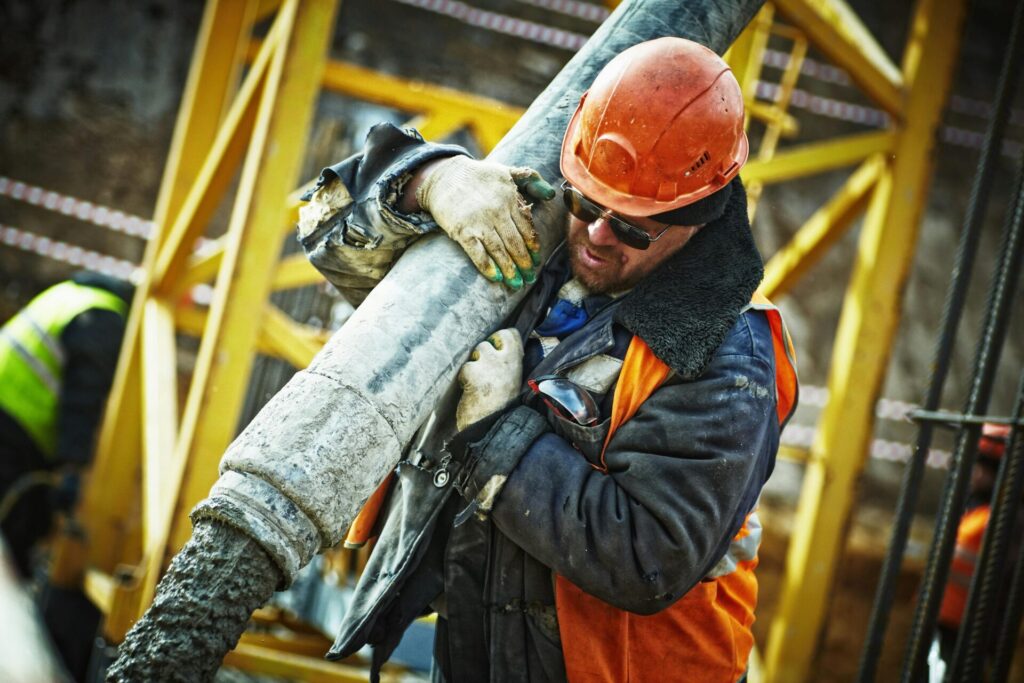
Embarking on a commercial construction project can be as thrilling as it is daunting. In Tennessee, where you’ll find a combination of modern innovation and rich historical roots, the opportunity to contribute to this evolving environment is truly exhilarating. However, achieving a seamless completion of a construction project in Tennessee requires more than just enthusiasm. It demands meticulous planning, a profound understanding of the industry, and forging the right partnerships. This guide is tailored to provide you with practical advice and insider tips to navigate the complexities of commercial construction.
Contents
- 1 1. Define Your Project Scope Clearly
- 2 2. Secure Financing Early
- 3 3. Choose the Right Professionals
- 4 4. Prioritize Communication and Transparency
- 5 5. Invest in Quality Materials
- 6 6. Implement Efficient Project Management
- 7 7. Understand and Comply with Legal Requirements
- 8 8. Focus on Sustainability and Eco-Friendly Practices
- 9 9. Ensure Safety on the Construction Site
- 10 10. Regularly Review and Adjust the Project Plan
- 11 11. Leverage Technology and Innovation
- 12 12. Build a Strong Team and Foster Collaboration
- 13 Conclusion
1. Define Your Project Scope Clearly
Before breaking ground, it’s crucial to have a crystal-clear understanding of what your project entails. This means detailed planning regarding the size, design, functionality, and specific requirements of your building. A well-defined scope helps prevent scope creep, which can lead to project delays and budget overruns. Start with a comprehensive needs analysis, and don’t hesitate to consult with architects and planners during this phase. Your project’s success hinges on this clarity.
2. Secure Financing Early
The financial aspect of commercial construction projects can often be overwhelming. It’s advisable to secure financing early in the process to ensure a smooth flow of operations. Explore different financing options, including loans, investments, and grants, to find the best fit for your project’s needs. Early financial planning allows for a more accurate budget and can prevent potential halts in construction due to financial issues.
3. Choose the Right Professionals
If you’re looking for a commercial construction company Tennessee has many different options to choose from. The importance of selecting a construction company that aligns with your project’s vision and goals cannot be overstated. Look for a firm with a solid track record of delivering similar projects on time and within budget. Consider their experience, reputation in the industry, and their ability to communicate and collaborate effectively. Don’t just settle for the first option; research, conduct interviews, and choose a partner that instills confidence.
4. Prioritize Communication and Transparency
When starting a commercial construction project, establishing a transparent and open line of communication with your chosen construction company is essential. Transparency in discussing timelines, costs, and any potential issues will pave the way for trust and a smoother project flow. Regular updates and honest communication can significantly reduce misunderstandings and project delays.
5. Invest in Quality Materials
While it might be tempting to cut costs by choosing less expensive materials, investing in quality materials from the start can save you money in the long run. High-quality materials are not only more durable and long-lasting but also add value to your commercial property. Moreover, they can lead to lower maintenance and repair costs, enhancing the project’s overall profitability.
6. Implement Efficient Project Management
Effective project management is the backbone of any successful construction project. This includes everything from detailed planning and scheduling to resource allocation and risk management. Utilizing project management tools and software can help keep your project on track and within budget. It’s also crucial to have a competent project manager who can oversee the project’s progress and tackle any challenges that arise promptly.
7. Understand and Comply with Legal Requirements
Navigating the legal landscape is a critical aspect of any commercial construction project. This involves understanding and complying with all local, state, and federal regulations, including zoning laws, building codes, and environmental regulations. Failure to comply can result in costly delays, fines, or even the halting of your project. It’s imperative to work closely with legal experts and local authorities to ensure that all necessary permits and approvals are obtained well in advance of construction commencement.
8. Focus on Sustainability and Eco-Friendly Practices
Incorporating sustainability and eco-friendly practices into your construction project is not just good for the planet; it’s also beneficial for your bottom line. Sustainable buildings often qualify for tax incentives, consume less energy, and have a higher market value. Consider sustainable materials, energy-efficient designs, and technologies like solar panels. Additionally, sustainability practices resonate well with consumers and can enhance your brand’s reputation and appeal.
9. Ensure Safety on the Construction Site
Safety should be a top priority on any construction site. Implementing rigorous safety protocols protects your workers, minimizes the risk of accidents, and ensures compliance with occupational safety regulations. Regular safety training, personal protective equipment, and clear signage can significantly reduce the likelihood of workplace injuries. A safe construction site also fosters a positive work environment and can enhance productivity.
10. Regularly Review and Adjust the Project Plan
Even with meticulous planning, construction projects are dynamic and often encounter unforeseen challenges. Regular reviews of the project plan allow you to adjust timelines, resources, and strategies as needed. Be proactive in identifying potential issues and flexible in finding solutions. Keeping stakeholders informed about changes and maintaining a flexible approach will help keep the project moving forward smoothly.
11. Leverage Technology and Innovation
The construction industry is increasingly benefiting from technological advancements and innovative practices. From Building Information Modeling (BIM) software for better planning and visualization to drones for site surveying and inspection, technology can streamline processes, improve accuracy, and save time. Adopting these tools can enhance efficiency, improve communication among team members, and ultimately contribute to the project’s success.
12. Build a Strong Team and Foster Collaboration
The success of a commercial construction project largely depends on the people behind it. Building a strong, skilled team and fostering a culture of collaboration can make a significant difference. This includes not only your core construction team but also architects, engineers, suppliers, and other stakeholders. Encourage open communication, teamwork, and problem-solving to navigate challenges effectively and achieve common goals.
Conclusion
Embarking on a commercial construction project is a significant undertaking, filled with complexities and challenges. However, by following these tips, you can navigate the process more smoothly and increase your chances of success. From the initial stages of defining your project scope to leveraging technology and fostering collaboration, each step plays a crucial role in the project’s outcome. A successful commercial construction project requires careful planning, a commitment to quality and safety, and an openness to innovation and collaboration.
